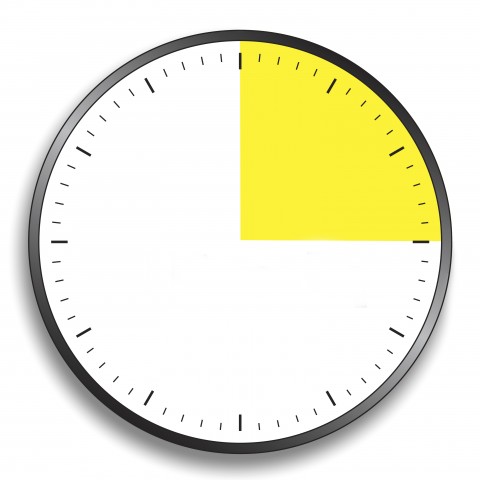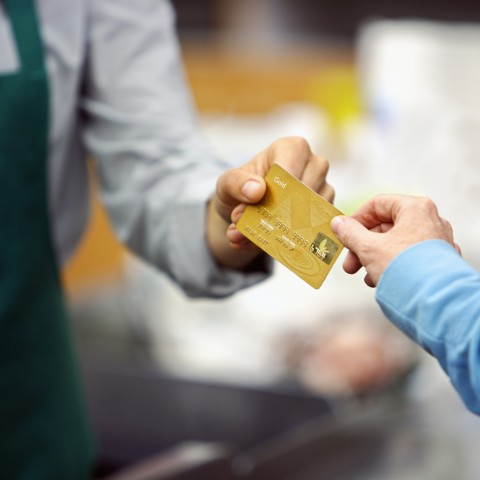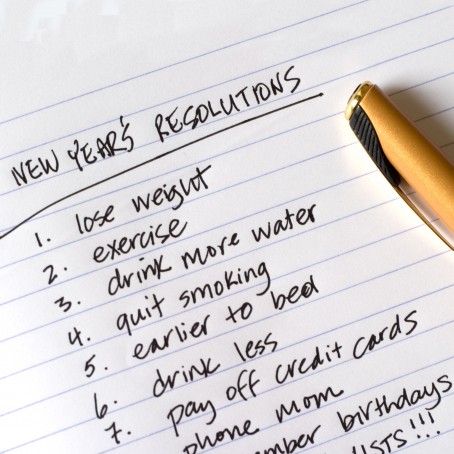
If you’re learning the Persian language or want to travel to a Persian-speaking country for a while, you must learn how to tell time in Persian and how to ask others for the time. For this, you need to know the key vocabulary and the important rules about hours, minutes, and days. In this article, we’ll guide you through everything you need to know about the time in Persian grammar so you can talk just like a native Persian speaker!
Are you ready? Let’s start!
For talking about the time in Farsi, first of all, you need to learn the numbers. After that, you need to learn and practice the basics, such as Persian vocabulary keywords related to time. In the table below, you’ll learn just a few of them:
| Time | زمان (zamaan) |
| Morning | صبح (sobh) |
| Night | شب (shab) |
| Hour | ساعت (saa’at) |
| Minute | دقیقه (daqiqe) |
| Second | ثانیه (saanie) |
| Day | روز (rooz) |
| Noon | ظهر (zohr) |
 Table of Contents
Table of Contents
- How to Ask for the Time in Persian
- What Time is the Event/Meeting/Appointment?
- How to Say the Hour in Persian
- How to Say the Minutes in Persian
- Hours Divided into Minutes
- General Time Reference of the Day in Persian
- Time Adverbs
- Time Proverbs and Sayings in Persian
- How PersianPod101 Can Help You Master Persian
1. How to Ask for the Time in Persian

If you want to ask for the time in Persian, you only need to remember this formula:
- ببخشید، ساعت چند است؟ (bebakhshid, saa’at chand ast?), which means “Excuse me, what time is it?” in Persian.
To say this sentence in its colloquial form, you only need to change است (ast), which means “is” in English, to ه (e):
ببخشید، ساعت چنده؟ (bebakhshid, saa’at chande?)
To answer this question and tell the time in Persian, you have to learn this formula:
- (Cardinal number) + ساعت (saa’at, which means “hour”) + و ([va – formal / o – informal] which means “and”) + (number of minutes) + دقیقه (daqiqe, which means “minutes”) + و (va / o) + (number of seconds) + ثانیه (saanie, which means “second.”)
For example, imagine you’re in Iran and you want to ask a stranger what time it is in Persian. The answer is “It’s two ten.” This conversation would look like:
A: ببخشید، ساعت چنده؟
A: bebakhshid, saa’at chande?
A: Excuse me, what time is it?
B: ساعت دو و ده دقیقه است.
B: saa’at do o dah daqiqe ast.
B: It’s two ten.
The word ساعت (saa’at) means “time” / “hour” / “clock” / “watch.”
دو (do) means “two,” و (o) means “and” (it could be read as [va] in formal speech), ده (dah) means “ten,” دقیقه (daqiqe) means “minute,” and است (ast) means “is.”
2. What Time is the Event/Meeting/Appointment?

There’s another form you can use when you want to ask for the time of a specific event, such as a meeting. For example, if you want to check the time of an event you’ve been invited to with your friend, you would ask “What time is the (Event/Meeting/Appointment/etc.)?” in Persian.
This is an example of a formula you can use:
ساعت + چند + است؟ + (Event/Meeting/Appointment/etc.)
For example:
A: مهمانی} ساعت چند است؟}
A: {mehmaani} saa’ate chand ast?
A: What time is the {party}?
B: مهمانی} ساعت پنج است}
B: {mehmaani} saa’ate panj ast.
B: The party is at six.
So you only need to remember the order of this sentence: { ساعت + چند + است؟ + (The Event) }, and replace the word in parentheses with the event, meeting, or appointment you want to ask about.
3. How to Say the Hour in Persian

The twelve-hour format is typically used for telling the time in Farsi. The twenty-four-hour format is used in formal situations, such as TV programs, the news, etc. The word for the hour / o’clock in Persian is ساعت (saa’at). To say “[number] hour/o’clock,” you only need to memorize this formula:
- ساعت + [number]
For example: Two o’clock is ساعت دو (saa’ate do) and seven o’clock is ساعت هفت (saa’ate haft).By memorizing the table below, you’ll learn how to say the time in Persian from one o’clock/hour until twelve o’clock/hour in Persian, using both the twelve- and twenty-four-hour formats.
| 12-hour set | 24-hour set |
|---|---|
| 1 o’clock: ساعت یک (saa’ate yek) | ساعت سیزده (saa’ate sizdah) |
| 2 o’clock: ساعت دو (saa’ate do) | ساعت چهارده (saa’ate chaahaardah) |
| 3 o’clock: ساعت سه (saa’ate se) | ساعت پانزده (saa’ate paanzdah) |
| 4 o’clock: ساعت چهار (saa’ate chaahaar) | ساعت شانزده (saa’ate shaanzdah) |
| 5 o’clock: ساعت پنج (saa’ate panj) | ساعت هفده (saa’ate hefdah) |
| 6 o’clock: ساعت شش (saa’ate shesh) | ساعت هجده (saa’ate hejdah) |
| 7 o’clock: ساعت هفت (saa’ate haft) | ساعت نوزده (saa’ate noozdah) |
| 8 o’clock: ساعت هشت (saa’ate hasht) | ساعت بیست (saa’ate bist) |
| 9 o’clock: ساعت نه (saa’ate noh) | ساعت بیست و یک (saa’ate bist o yek) |
| 10 o’clock: ساعت ده (saa’ate dah) | ساعت بیست و دو (saa’ate bist o do) |
| 11 o’clock: ساعت یازده (saa’ate yazdah) | ساعت بیست و سه (saa’ate bist o se) |
| 12 o’clock: ساعت دوازده (saa’ate davazdah) | ساعت بیست و چهار (saa’ate bist o chaahaar) |
Examples:
- It’s 2 o’clock. ساعت دو است (saa’at do ast.)
- It’s 7 o’clock. ساعت هفت است (saa’at haft ast.)
- It’s 16 o’clock. ساعت شانزده است (saa’at shaanzdah ast.)
- It’s 18 o’clock. ساعت هجده است (saa’at hejdah ast.)
4. How to Say the Minutes in Persian

The word for “minute” in the Persian language is دقیقه (daqiqe). To say the minutes in Persian, you simply need to remember this formula:
- دقیقه + Number
For example, “one minute” will be: یک دقیقه (yek daqiqe).
“Ten minutes” will be: ده دقیقه (dah daqiqe).
Now imagine someone asks you what time it is, and the time is 3:45. In Persian, this would be:
سه و چهل و پنج دقیقه (se o chehel o panj daqiqe).
Let’s see more examples:
- 2:10 : دو و ده دقیقه (do o dah daqiqe)
- 8:50 : هشت و پنجاه دقیقه (hasht o panjaah daqiqe)
- 3:25 : سه و بیست و پنج دقیقه (se o bist o panj daqiqe)
So after learning how to say the minutes in Persian, it’s time to learn how you can use this in sentences.
For example, imagine you’re at the bus station and someone asks you:
A: ببخشید، ساعت چند است؟
A: bebakhshid, saa’at chand as
A: Excuse me, what time is it?
If the time is 9:15, you can use the following formula:
- است. + دقیقه + number + و + number + ساعت
So it would be: ساعت نه و پانزده دقیقه است (saa’at noh o paanzdah daqiqe ast).
Here are more examples:
- It is 6:45. ساعت شش و چهل و پنج دقیقه است (saa’at shesh o chehel o panj daqiqe ast.)
- It is 7:25 o’clock. ساعت هفت و بیست و پنج دقیقه است (saa’at haft o bist o panj daqiqe ast.)
- It is 1:36 o’clock. ساعت یک و سی و شش دقیقه است (saa’at yek o si o shesh daqiqe ast.)
5. Hours Divided into Minutes

After learning how to say the hours and minutes in the Persian language, let’s talk about dividing hours into minutes.
First of all, let’s learn the words for “half” and “quarter” in Farsi:
- Half — informal: نیم (nim), formal: سی دقیقه (si daqiqe)
- Quarter — informal: ربع (rob), formal: پانزده دقیقه (paanzdah daqiqe)
For example, if you want to say: “It is half past ten,” you can use this formula:
- Formal: ساعت ده و سی دقیقه است (saa’at dah o si daqiqe ast.)
- Informal: ساعت ده و نیم است (saa’at dah o nim ast.)
Or, to say “It’s a quarter to seven”:
- ساعت یک ربع به هفت است. (saa’at yek rob be haft ast)
- ساعت پانزده دقیقه به هفت است. (saa’at paanzdah daqiqe be haft ast)
6. General Time Reference of the Day in Persian

Now let’s learn the words related to general time of day. We can use them to say what part of the day it is, with or without the exact time. Note that many of these are common greeting phrases in Persian.
| English | Persian |
|---|---|
| Sunrise | طلوع خورشید (toloo’e khorshid) |
| Early morning | صبح زود (sobhe zood) |
| Morning | صبح (sobh) |
| Noon | ظهر (zohr) |
| Afternoon | بعد از ظهر (ba’d az zohr) |
| Evening | عصر (asr) |
| Sunset | غروب خورشید (ghoroobe khorshid) |
| Night | شب (shab) |
| Midnight | نیمه شب (nimeh shab) |
| Today | امروز (emrooz) |
| Tomorrow | فردا (fardaa) |
For example, if you want to say “tomorrow morning” in Persian, it would be like:
صبح فردا (sobhe fardaa)
To say “I will call you at night”:
من شب به شما زنگ خواهم زد (man shab be shomaa zang khaaham zad.)
7. Time Adverbs
After learning the basics about how to tell time in Persian, let’s talk about the time adverbs. Here are some examples:
Right now — همین الان (hamin al’aan)
Currently — در حال حاضر (dar haale haazer)
Meanwhile/at the same time — در همین حال (dar hamin haal)
Before — قبل (ghabl)
After — بعد (ba’d)
Soon — بزودی (bezoodi)
Almost — تقریبا (taghriban)
For a long time — برای مدت طولانی (baraaye moddate toolaani)
Anytime — هر زمان (har zamaan)
As soon as possible — در اسرع وقت (dar asra’e vaqt)
For example, if you want to say “Come right now,” in Persian, it would be:
.همین الان بیا (hamin al’aan biaa.)
Here are more examples:
- I will see you soon. من شما را بزودی خواهم دید (man shomaa raa be zoodi khaaham did.)
- I’ll try to come as soon as possible. من سعی میکنم که در اسرع وقت بیایم (man sa’y mikonam ke dar asra’e vaght biaayam.)
8. Time Proverbs and Sayings in Persian
Now that you’ve learned about telling the time in Persian, as a conclusion let’s learn together a few time proverbs in Persian.
Time is money. وقت طلاست (vaqt talaast.)
Time flies. زمان میگذرد (zamaan migozarad.)
Time heals all wounds. زمان همه زخم ها را بهبود می بخشد (zamaan hameye zakhm haa raa behbood mibakhshad.)
9. How PersianPod101 Can Help You Master Persian

Congratulations on making it through this article on telling time in Persian! We hope you enjoyed learning about this essential topic with us.
How do you feel about telling time in Persian now? More confident, or is there still something you’re not quite sure about? Drop us a comment to let us know your thoughts!
To continue learning about Persian culture and the language, explore PersianPod101.com. We provide an array of learning tools for every learner, at every level:
- Insightful blog posts
- Free vocabulary lists
- Podcasts and videos
- Mobile apps
- Much, much more!
Persian can be a difficult language to master, but know that you’re in the right place! Your hard work will pay off in the long run, and PersianPod101 will be here with help and guidance on each step of your language-learning journey!

The Persian Calendar: Talking About Dates in Persian
Did you know there are many different types of calendars?
As you probably know – a calendar is a system of organizing days in weeks and months for specific purposes, according to Wikipedia.
Worldwide, most countries use the Gregorian calendar. Some just work on the same framework, meaning that time is divided into units based on the earth’s movement around the sun – the “solar calendar”. Other calendars keep time by observing the moon’s movements, a combination of the moon and the sun’s movements, and seasons.
Through PersianPod101, you can learn all about this and so much more! Our themed, culturally relevant lessons are skillfully designed so you can do your planning perfectly for a holiday or a date.
Having a good plan for a visit or a trip is like studying well for an exam. You’re just so much better prepared! For that, you could well need specific phrases to plan around appointments and such, especially on business trips. Make sure to use the charts we provide here with the days of the week in Persian, as well as the months in Persian to navigate your way as you plan. Great resources!
Also – always remember to have fun!
Table of Contents
- Why Will It Help To Know How To Talk About Dates in Persian?
- Talking About your Plans
- Can PersianPod101 Help You In Other Ways Too?

1. Why Will It Help To Know How To Talk About Dates in Persian?
Well, that’s not a difficult question to answer. No matter why you’re travelling, it would be best to at least know the names of days and months in Persian. You don’t want to miss your flight or an appointment because you confused “جمعه” (“jome,” Friday) with “شنبه” (“shanbe,” Saturday)! Or maybe you planned a holiday for “جولای” (“joolaay,” July), but you booked a flight for “ژوئن” (“zhooan,” June) by accident!
Avoid this confusion by learning the Persian calendar before you leave.
Now, as promised, the 15 phrases to help you make and discuss plans.
2. Talking About your Plans
Perhaps you’re working in Iran, or maybe you’re enjoying a prolonged holiday. Fabulous! Memorize these phrases so you can be sure to successfully negotiate meetings, appointments, dates, events, the list goes on!
1. این آخر هفته چه کار می کنید؟
in aakhar-e hafte che-kaar mikonid?
“What are you doing this weekend?”
This question is usually a preamble to inviting someone somewhere. Given that it’s over the weekend, it probably means a casual get-together or another social event. (But not necessarily! A manager or boss could also ask this for entirely different reasons.)
It’s a handy phrase to know when you’ve made Iranian or expat friends in the country. Or, be the one doing the inviting. Then train your ear to learn the following phrases so you can understand the response.
2. این آخر هفته سفر میکنم.
in aakhar-e hafte safar mikonam.
“I am traveling this weekend.”
This could be a reply if you’re not available because you’re doing other fun stuff.
No matter why you are visiting Iran, do take the time to explore the country! It’s beautiful and it has so many wonderful, interesting spots ready to be visited.
3. برنامه دارم در خانه بمانم.
barnaame daaram dar khaane bemaanam.
“I am planning to stay at home.”
Maybe you feel unwell, but don’t want to give too much information? Or maybe you have work to do? Perhaps you just need some quiet gardening time…it doesn’t matter. This response is polite and honest without oversharing.
It could also be a slightly open-ended response, depending on how you deliver it. Because hey, being home could still mean your plans are flexible, right?
That said – depending on your relationship with the inviter, nuances like these will probably not be so apparent in a foreign culture. So, best to use this excuse for declining an invitation only if you are truly set on staying in.
4. این هفته مشغول هستم.
in hafte mashghool hastam.
“This week I am busy.”
Another polite phrase that gives a reason for declining an invitation but without oversharing details.
Don’t decline too many invitations, though! You don’t want people to think that you’re too busy to hang out with them. They will stop inviting you out, and you know how the saying goes – all work and no play makes Jack a dull boy…! Being social is good for the soul.
5. فردا آزاد هستم.
fardaa aazaad hastam.
“I am free tomorrow.”
Yay! Perhaps you were approached by that person and they asked about your availability for a date. This would be a fine reply. Not too eager, but still indicating that you’re interested.
Or maybe you’re just replying to a colleague or manager’s request for a meeting. Polite, honest and clear.
Alternatively, you’re just busy right now, and plans are not going the way they were…well, planned. Compromise is a lovely thing! And this phrase sounds just like that.
Use it to indicate that you want to accommodate an invitation or the inviter’s plans, despite your current unavailability. Only if you are really free, of course.
6. آیا میتوانیم این را دوباره برنامهریزی کنیم؟
aayaa mitavaanim in raa dobaare barnaame-rizi konim?
“Can we reschedule this?”
So, life happened and you are unable to meet obligations or attend a planned meeting. This is a suitable question to ask if you wish to indicate your willingness to still engage with whatever is on the table.
Obviously you should (ideally) not ask to reschedule a party or big meeting! (Unless you’re the boss or it’s your own party, of course.) But if there’s reasonable wiggle room regarding arrangements, then this one’s your question.
7. من در پایان ماه وقت کافی خواهم داشت.
man dar paayaan-e maah vaqt-e kaafi khaaham daasht.
“I will have enough time at the end of the month.”
A go-to phrase when events or activities are likely to take up a lot of your time, such as going away for a weekend, spending the day at a local market, or writing your manager’s quarterly report (with 20 flow-charts in Powerpoint) – anything that won’t only take an hour or two.
8. بهترین زمانی که برای شما مناسب باشد چه وقتی است؟
behtarin zamaani ke baraaye shomaa monaaseb baashad che vaqti ast?
“When is the best time that suits you?”
Remember phrase #5? That was a possible reply to this question. Asked by your crush, very possibly! Or, it could be asked by any other person for any other reason, doesn’t matter.
If this is addressed to you, it usually means that the person respects your time and schedule, which is a good thing. It probably also means that their own schedule is flexible, another good thing.
This is also a polite question to ask when a manager or senior colleague wants to meet with you. Let them decide on the time, and be as accommodating as possible. This attitude shows respect for seniority – good for career building. (Within reason, of course. You don’t need to postpone your wedding or your paid-up holiday to Australia because your manager wants to see you.)
9. آیا این تاریخ برای شما مناسب است؟
aayaa in taarikh baraaye shomaa monaaseb ast?
“Is this date OK with you?”
But – if the other party insists that you choose a time for a meeting, appointment, or date etc., then do so! Respond with this nice, somewhat casual question that leaves space for negotiation, but only needs a simple reply.
Suitable for friends, and casual acquaintances and colleagues.
10. آیا در آن روز در دسترس هستید؟
aayaa dar aan rooz dar dastras hastid?
“Are you available on that day?”
This is the a-bit-more-formal version of the previous question. Again, it has room for negotiation, but only needs a simple response – nice and neat!
Maybe this is the go-to question when you’re addressing your seniors at work, or a person much older than you.
11. آیا میتوانیم این کار را در اسرع وقت انجام دهیم؟
aayaa mitavaanim in kaar raa dar asra’e vaqt anjaam dahim?
“Can we do it as soon as possible?”
This question has an urgency to it that should preferably be responded to with the same. A simple reply will be good – yes or no. Less negotiable, this is still polite because it’s a question that gives you a choice.
But stand ready with one of the phrases in this article to help tie down a time and date!
12. من هر روز عصر در دسترس هستم.
man har rooz asr dar dastras hastam.
“I’m available every evening”
If you’re going to reply with this phrase, context is everything.
– If it’s your manager asking you to put in a bit of overtime, and you are available to – great reply! When deadlines are tight and everybody is stressing, your willingness to go the extra mile can only improve your relationship with your boss.
(Still, no need to be a doormat! If you get asked to work overtime too often, or if everyone else is goofing around while you have to graft, then re-evaluate the situation. And if you feel you’re being exploited a bit, don’t stress! Equip yourself with the diplomatic, yet assertive responses right in this article.)
– If it’s an old friend or longtime significant other asking to hang out – good reply. You know one another and appearances don’t matter any longer.
– If it’s a new crush who just asked when you’d be available for a date – stop. Not such a great reply. Tone down a bit! “Interested but not overly eager” is what you’re going for here.
Refer back to response #5, or use a counter-question, such as #1. Whatever suits you.
But if they – or anyone else – invite you to scale the Himalayas with them, then the next phrase will probably be the only sane response!
13. لازم است این را پیشاپیش به خوبی برنامهریزی کنم.
laazem ast in raa pishaapish be khoobi barnaame-rizi konam.
“I need to plan this well in advance.”
So, as said under #9, perhaps you’re invited to join someone conquer the Himalayas.
Or your company manager wants you to plan the Party that Tops All Year-End Parties Forever.
Simply – if you get asked to do something that you know will need a lot of thorough planning, this is a good phrase to respond with.
It’s an assertive phrase that demonstrates two things regarding your attitude:
a) That you know your own abilities, and respect your own schedule.
b) That your respect other people’s time and schedule too.
Then just be sure to actually do that planning well in advance!
14. لازم است یک تاریخ دیگر پیدا کنیم.
laazem ast yek taarikh-e digar peydaa konim.
“We need to find another date.”
So, you’re in negotiations regarding a date.
This is an assertive statement that should probably not be used with a “My way or the highway” attitude.
That stuff only works in the movies – think sharp-tongued Samuel L. Jackson. Or fierce Kristen Stewart. Yea, they can be scary, so tone down that tone.
Also, be mindful that fickle people who change plans all the time don’t keep friends! Taking others’ needs into consideration, while simultaneously having your way is a delicate art that takes proper cultivation. Use this phrase sparingly – we have better ones here to negotiate with.
Of course, if your planned trip to the dentist falls on the same day as the only Billie Eilish concert close by…well, priorities are priorities. Feel free to call the dentist with this phrase. Or even better, use the next one.
15. نمیتوانم این کار را در آن روز انجام دهم.
nemitavaanam in kaar raa dar aan rooz anjaam daham.
“I cannot do it on that day.”
This is the low-key-but-still-firm cousin of the previous phrase. You’re stating a personal fact, and depending on your tone, this can be as non-negotiable as you prefer.
Again, only use this when you really mean it, if you’re visiting Iran or any other foreign country.
So, that’s it, folks! Which phrase did you find the most helpful? Let us know in the comments!
3. Can PersianPod101 Help You In Other Ways Too?
Well yes, of course!
We think you will find these phrases easy to use when talking about dates and months in Persian. But knowing how to employ them properly could help you avoid sticky situations!
PersianPod101 is uniquely geared to help you with this and so much more.
This InnovativeLanguage.com initiative is one of many online language-learning courses. With us, you’ll find it easy and fun to learn a new language, and here are a few reasons why:
- Immediately upon enrollment, you’ll receive hundreds of well-designed lessons to get you going.
- Watch superb recordings of native Persian speakers in cool slide-shows – the easy way to practice till you sound just like a native speaker yourself!
- Also immediately upon enrollment, you’ll get access to a huge library of free resources! These include extensive, theme-based Vocabulary Lists and a Word of the Day List (For free, hot bargains!) These alone are sure to give your vocab-learning boxing gloves.
- You’ll also immediately be able to use an excellent and free Persian online dictionary. Necessary for quick, handy translations, no matter where you find yourself.
- For the serious learner, there are numerous enrollment upgrades available, one of which offers you a personal, online Iranian host. Allow us to hold your hand and support you in your learning!
If you’re serious about mastering Persian easily yet correctly, PersianPod101 is definitely one of, if not the best, online language learning platforms available. Talking about your plans or dates in Persian need not ever spoil your stay.
So, hurry up—enroll today!
PersianPod101’s Essential Persian Travel Phrase Guide
Traveling to foreign countries is nearly always an exciting, enriching, and beneficial experience. Yet, some things can be real downers, such as boredom on a lengthy flight to Iran. Really, binge-watching onboard movies can only be interesting for so long! And jet lag – another huge downer. Did you know that jet lag is more severe when you travel from the West to the East?
Well, we won’t know how to beat that, but there are fortunately plenty of remedies around to investigate.
To beat flight boredom, though, we may have the answer for you at PersianPod101! Why don’t you take the time to study Persian travel phrases? We make this super easy and fun, with great downloadables, like our PDF Cheat Sheets. Quickly memorize these, and impress your Iranian friends or travel guide with your flawless Persian!
Table of Contents
- Importance Of Learning Travel Phrases
- 13 Must-Have Travel Phrases and Words
- Good-To-Have Travel Phrases
- Ways To Improve Communication in a Foreign Country
- PersianPod101 Can Help You Master Travel Phrases Easily and Effortlessly!

1. Importance Of Learning Travel Phrases
Impressing Iranian people or your travel partners will be the least of the benefits you reap from learning these helpful phrases. These are greater ones:
1) Eliminate Travel Frustration: First of all, you’ll be able to cut out a good chunk of travel frustration and inconvenience due to language barriers.
Know how to pronounce and use at least the basic Persian phrases, and then just look foreign. This should go a long way to help you get by and win you friends, because locals would be more inclined to help someone who took the trouble to learn a smidgen of their language.
2) Emergency Readiness: In case of an emergency, you will be able to get help a lot quicker if you know how to ask for what in Persian. Imagine miming to a doctor or nurse that you have a sore ear but that you’re allergic to penicillin. Not so easy, right?
Rather, you should know basic emergency travel phrases, especially if you suffer from a serious condition. Also, information about life-threatening allergies you have should always be on your person in the language of the country you’re visiting.
3) Sight-Seeing Readiness: Hopefully, you also travel to learn more about a country’s culture. Visiting the main tourist sites in Iran will be more interesting if you know how to ask pertinent questions in Persian.
In this blog, we’ll also be giving you important travel phrases to consider – from the 13 essential must-have phrases to ones that are just generally useful and good to know.
Let’s get cracking!
2. 13 Must-Have Travel Phrases and Words
Seasoned explorers of multiple countries will tell you that certain words and phrases are absolute must-knows in anyone’s travel vocabulary. Learning from them, we collated some of the most essential ones here for you.
If you know these travel phrases and words by heart in Persian, you will be much better equipped for your visit than most of your movie-binging travel mates.
1) متشکرم / motshakeram (Thank you)
As a tourist, you will be relying on the kindness of strangers to get by. Repay them with a small acknowledgment of their friendly generosity – know how to say “thank you” in Persian.
2) شما انگلیسی صحبت می کنین؟ / shomaa engilisi sohbat mikonin? (Do you speak English?)
While it may be a bit of a cop-out, sometimes you just can’t figure out how to communicate. Maybe you’re blanking on one specific word you need, maybe they’re speaking with a heavy accent, or maybe it’s just really late and you really want to get to the hotel. In that case, try asking if they speak English, and hopefully you can make things a little bit simpler for yourself.
Don’t abuse this phrase, though! If you just try to get by without learning any of the local language, not only will you not learn anything – you’ll be out of luck if they can’t speak English!
3) از فرودگاه به شهر اتوبوس هست؟ / az fooroodgaah be shahr ootooboos hast? (Is there a bus from the airport to the city?)
Public transit is usually cheaper, if slower, than taking a taxi or rideshare. Use this phrase to see if you can get where you’re going when you’re strapped for cash, or just when you’d like to take the scenic route into town!
4) این اتوبوسی است که به فرودگاه می رود؟ / In ootooboosi ast keh beh fooroodgaah miravad? (Is this the right bus for the airport?)
Likewise, if you’re the kind of person who can get themselves moving early (or maybe you just have a late flight), maybe you want to take the bus to the airport rather than taking a cab. If that’s the case, you’ll want to be sure you’re actually heading the right way! You wouldn’t want to end up at a lookout point half an hour away, watching your flight take off in the distance, would you?
5) ببخشید، کرایه چقدره؟ / bebakhshid, keraayeh cheghadreh? (Excuse me, what’s the fare?)
If you are paying for a cab, you’ll want to know how much. Most legal taxis will have meters, but when dealing with a currency you’re not familiar with, it can be worth asking just to double check that you’re paying the right amount – especially if the currency has cents.
6) من یک رزرو دارم / man yek rezerv daaram (I have a reservation)
This one you can expect to use at least a few times throughout your trip, unless you’re the kind of person who travels by the seat of their pants and just goes to whatever hotel, motel, or hostel has rooms available.
7) امشب جای خالی دارید؟ / emshab jaay-e khaali darid? (Do you have any vacancies tonight?)
If that’s the case, you’ll definitely be using this phrase instead. Quite possibly a lot, depending on how lucky you are!
8 ) ایستگاه قطار کجاست؟ / istgaah-e ghataar kojast? (Where is the train station?)
If you’re in a country with an expansive commuter rail system (or maybe just a fan of other types of locomotives), you may want to know where the closest station is. Just don’t go looking for pennies on the rails!
9) من به بادوم زمینی حساسیت دارم / man beh baadoom zamini has-saasiyat daaram (I am allergic to peanuts)
Replace “peanuts” with whatever the word for your allergen may be. If your allergy is serious, you probably already know the importance of stating this very clearly in Persian.
If the condition is life-threatening, be sure to have a letter or prescription from a medical professional in Persian on your person at all times. Consider getting a medical alert bracelet specially made in Persian if your stay will be longer than a month or so.
10) غذای گیاهی دارین؟ / ghazaay-e giyaahi daarin? (Do you have any vegetarian dishes?)
If you dislike eating certain things, or you have certain dietary restrictions, it would be best if you knew how to convey this clearly in Persian.
Remember, though, that saying “I’m vegan” or “I’m diabetic” may not be enough to get you what you want. The rules for veganism and vegetarianism are not standard everywhere in the world. Also, your patron might not understand what “diabetic” means. If you have a medical condition, it would be best to research some in-depth vocabulary beforehand.
11) ممکنه یه نقشه به من بدین؟ / momkeneh yeh naghsheh beh man bedin? (Could I get a map?)
Planning on exploring your destination? Hopelessly lost? Maybe just an amateur cartographer? No matter the reason, this phrase is sure to come in handy. That said, you’re more likely to get use out of it at some sort of tourist or travel center than you are asking a random passerby on the street.
12) قیمت این چقدر است؟ / gheymat-e in che ghadr ast? (How much is this?)
Even if you’re not a big shopper, you’re probably going to need this phrase at some point. Knowing how to count in Persian will, of course, help a lot with purchases too.
13) کارت اعتباری قبول می کنین؟ / kaart-e e’tebaari ghabool mikonin? (Do you take credit card?)
This is another travel phrase that will smooth your monetary transactions considerably.
3. Good-To-Have Travel Phrases
Unlike the previous phrases, these are not really essential so much as they are useful. Yet, knowing these will still smooth over some bumps on your journey, more than just knowing the crucial phrases would.
1) وای فای رایگانه؟ / vaay faay raaygaaneh? (Is the Wi-Fi free?)
If you’re abroad, your normal cellular plans probably won’t have any service, and you’ll be totally reliant on publically available Wi-Fi while you’re out and about. Just ask a server, clerk, or attendant, and they’ll be happy to let you know. Just make sure you’re paying attention when they tell you the password!
2) میشه لطفا ازم یه عکس بگیرین؟ / misheh lotfan azam yeh aks begirin? (Could you take a picture of me please?)
What would a trip be with no photos to commemorate the event? Just be sure to ask this of someone who actually looks like they’d be willing to, unless you’re willing to risk being given the cold shoulder or worse. If you’re at a tourist attraction, you’ll find that most people are more than happy to take one for you, so long as you take one of them as well!
3) پیشنهادی دارید؟ / pishnehaadi darid? (Do you have any recommendations?)
Eating alone in a restaurant? Or going out with new Iranian friends or business colleagues? Let them help you decide what to have.
4) اگر ممکنه یه صندلی غیرسیگاری میخوام / agar momken-e yeh sandali-ye gheir-e sigaari mikhaam (I’d like to have a non-smoking seat, please)
Though smoking has gone out of fashion in some places, it’s still popular in others. In the event you’re at a restaurant where smoking is allowed on premises, you can always ask this question to the staff and be seated elsewhere.
5) آب، لطفا / aab, lotfan (Water, please)
If you’ve emptied your glass, or are cutting yourself off after a few drinks, you can always ask for some water. It can be especially useful if the restaurant is busy to the point you need to call out to someone to get service.
6) میشه صورتحسابو بیارین؟ / misheh soorat-hesaab-o biyaarin? (Could I have the check?)
To finish off the restaurant related phrases, if you’re eating with friends or really want to impress your colleagues, taking the bill can be a nice treat for them. Of course, this phrase could come in handy as well if you’re eating alone and you’re just impatient to leave.
7) برای سوغاتی چی پیشنهاد می کنین؟ / baraay-e soghaati chi pishnehaad mikonin? (What do you recommend for a souvenir?)
Now that your trip is over, what better way to cap it all off than a memento, or maybe a gift for friends and family at home? It’ll be nicer to have something recommended by the locals than a cheap bauble from the airport store, so go ahead and ask someone you’ve met what they think.
4. Ways To Improve Communication in a Foreign Country
When traveling, it’s possible to keep communication smooth when you don’t share a language.
Do so by keeping these five tips in mind. They are aimed to help you communicate with those who cannot speak English very well, and also to keep your traveling experience pleasant!
1. Keep your English simple and easy to understand.
If the person you are talking to speaks very little English, use basic verbs, adjectives, and nouns, and keep sentences short.
However, don’t patronize them by talking in pidgin or like you would address a child. Keep your speech simple but natural, and use the correct grammar.
For instance, don’t say: “You come when?”. If you say: “When will you come?”, you will very likely be understood, and may even help someone who wants to improve their English.
2. Ask someone to write information down.
Apply Rule 1 first at your hotel, where the staff is very likely to be able to speak some English. Get them to write down, in their native language, things like: “I would like to go to the airport, please,” “Please take me to the beach,” or “Where is the closest bathroom?”
These written questions are something you can then give to taxi drivers or any other people who are willing and able to help you. This simple step could make your life a lot easier when you travel to a foreign country!
3. Avoid asking leading questions!
If you want the correct information from a non-native English speaker, that is.
When you need directions, for instance, don’t ask: “To get to the bus stop, do I need to turn left here?” If the person didn’t really understand you, you will probably just get a smile and a “Yes,” which could possibly make you miss your bus.
Rather, you should ask: “Where is the bus stop?” If they understand you, you will get the correct directions.
4. Pick the right person to ask for help.
Time to look at people and think a bit about their appearance! A younger person who looks like they might be a student is more likely to have English skills than the friendly but ancient lady smiling at you from a fruit stall.
If you don’t see anyone like that, head into town to the nearest bank, hospital, pharmacy, or hotel. The staff at those places usually speak a bit of English.
5. Know when to quit.
If you stuck to the above rules, but the person you are talking to only stares at you blankly, say thank you and leave. Hanging around hoping someone will suddenly understand and respond is just wasting your time, and may irritate them as well. Go find someone else.
5. PersianPod101 Can Help You Master Travel Phrases Easily and Effortlessly!
So, reader, have you found this article helpful?
Do you feel comfortable enough to use some essential travel phrases in Persian? We’d also love to hear if you think we left out important travel phrases. Leave your suggestions and opinions in the comments!
PersianPod101 takes the lead with many free learning tools to help you master Persian reading and speaking easily, and in fun ways.
These tools include:
– An extensive vocabulary list, regularly updated
– A new Persian word to learn every day
– Quick access to the Persian Key Phrase List
– A free Persian online dictionary
– The excellent 100 Core Persian Word List
– An almost limitless Lesson Library for learners of all levels
You will also have access to topic-specific recordings like our Before You Travel: Survival Phrases lesson.
Learn even more efficiently with the help of a personal tutor, after taking an assessment test to personalize and tailor your training.
Getting a tutor is also a good option if you meet challenges in your learning, or need to fast-track correct pronunciation and diction. Your very own friendly, Persian-speaking teacher will be only a text away on a special app, anywhere, anytime – an excellent option for business persons!
Using a guided learning system that was developed by experts in language and online education, you’ll receive personal feedback and constant support to improve in no time. You’ll also be tasked with weekly assignments in reading, writing, and speaking to hone your Persian speaking skills.
Imagine how impressed your Iranian friends or colleagues will be when you display your excellent conversational skills! With PersianPod101, getting there will be easy and fun.

How to Say Happy New Year in Persian & New Year Wishes
Learn all the Persian New Year wishes online, in your own time, on any device! Join PersianPod101 for a special Persian New Year celebration!
Can you relate to the year passing something like this: “January, February, March – December!”? Many people do! Quantum physics teaches us that time is relative, and few experiences illustrate this principle as perfectly as when we reach the end of a year. To most of us, it feels like the old one has passed in the blink of an eye, while the new year lies ahead like a very long journey! However, New Year is also a time to celebrate beginnings, and to say goodbye to what has passed. This is true in every culture, no matter when New Year is celebrated.
So, how do you say Happy New Year in Persian? Let a native teach you! At PersianPod101, you will learn how to correctly greet your friends over New Year, and wish them well with these Persian New Year wishes!

Table of Contents
- How to Celebrate New Year in Iran
- Must-Know Persian Words & Phrases for the New Year!
- Top 10 New Year’s Resolutions in Persian
- Inspirational New Year Quotes
- Inspirational Language Learning Quotes
- How To Say Happy New Year in 31 Languages
- How PersianPod101 Can Help You Learn Persian
But let’s start with some vocabulary for Persian New Year celebrations, very handy for conversations.
1. How to Celebrate New Year in Iran
In Iran, the New Year traditionally begins on the first day of spring, typically sometime around March 20. Iranians start their New Year as the earth awakens from its winter hibernation and plants spring forth from the ground, which is why the New Year is called Nowrooz, meaning “new day” in Persian.
In this lesson, you will learn about how during Nowrooz, members of Iranian families gather around the Sofre-ye Haft-Seen, literally meaning the seven ‘S’s table, to wish each other a happy New Year, eat dinner, and relax together.
Now, before we get into more detail, do you know the answer to this question-
What is commonly eaten on the first day of the New Year in Iran?
If you don’t already know, you’ll find out a bit later. Keep reading.
Nowrooz activities actually begin several days before the Eid. One of these activities is spring cleaning. In each household, family members clean, wash, and tidy up their living spaces in preparation for the Eid, which means feast. These activities are called Khaane Tekaani, which literally means the shaking out or removing of dust from the house. After this is finished, the family members put on their new, clean clothes and wait for the New Year to come.
When Iranians hear the word Nowrooz, they often think of Sofre-ye Haft-Seen, which refers to a series of objects and foods that are set on the table or onto a piece of cloth, the names of which all begin with the sound ‘s’ in Persian.These objects represent concepts such as goodness and blessings. Among them, there is usually Senjed, which is dried oleaster wild olive fruit, Sib or apple, Sabzeh or sprouts from green plants, Samanoo or sweet pudding, Sir or garlic, Serkeh or vinegar, Somaq or sumac, and Sekke, which is a coin. A mirror, a candle, a goldfish, colored eggs, and a collection of Hafez poems are also oftentimes included. Family members gather around the display to congratulate each other on the Eid, and older members give younger ones money as a New Year’s gift.
One of the most important traditions that still remains intact from ancient times is eid didani. On eid didani, people visit relatives, friends, and acquaintances, and the host receives their guests by giving them candies, dried nuts, and fruits. Making trips out to various towns and spending time outdoors are popular activities among Iranians on Nowrooz. This way, people prepare themselves for a year full of work, activity, jubilation, and success. The older members of the family present the Eidi or New Year’s gift, which in most cases is cash in brand new bills, to the younger members.
Did you know that Iranians also celebrate a character similar to Santa Claus during Nowrooz called Amoo Nowrooz, or Uncle Nowrooz? Like his western counterpart, Uncle Nowrooz is a kind old man with a white beard who announces the coming New Year to the people. There is another character related to the New Year named Haji Firooz. With a black face and red clothes, he dances, sings, beats a drum, and performs comical routines to amuse onlookers in the streets.
Now it’s time to answer our quiz question-
What is commonly eaten on the first day of the New Year in Iran?
The first food eaten in the New Year is usually Sabzi Polo baa Maahi, a dish comprised of rice, fish, chopped vegetables, spices, salt, and oil. The components of this dish represent the productivity of nature, the bounty of rice, and the active movements of fish. Eating this food on Nowrooz symbolizes an appreciation for the bounties provided by God in the New Year.
Happy New Year!
عید شما مبارک
eid-e shomaa mobaarak
2. Must-Know Persian Words & Phrases for the New Year!
1- Year
سال
saal
This is pretty self-explanatory. Most countries follow a Gregorian calendar, which has approximately 365 days in a year, while in some cultures, other year designations are also honored. Therefore, New Year’s day in Iran could fall on a different day than in your country. When do you celebrate New Year?
2- Midnight
نیمه شب نیمه شب
nime shab
The point in time when a day ends and a new one starts. Many New Year celebrants prefer to stay awake till midnight, and greet the new annum as it breaks with fanfare and fireworks!
3- New Year’s Day
روز آغاز سال نو
rooz-e aaqaaz-e saal-e no
In most countries, the new year is celebrated for one whole day. On the Gregorian calendar, this falls on January 1st. On this day, different cultures engage in festive activities, like parties, parades, big meals with families and many more.
4- Party
میهمانی
mihmaani
A party is most people’s favorite way to end the old year, and charge festively into the new one! We celebrate all we accomplished in the old year, and joyfully anticipate what lies ahead.
5- Dancing
رقص
raqs
Usually, when the clock strikes midnight and the New Year officially begins, people break out in dance! It is a jolly way to express a celebratory mood with good expectations for the year ahead. Also, perhaps, that the old year with its problems has finally passed! Dance parties are also a popular way to spend New Year’s Eve in many places.
6- Champagne
شامپاین
shaampaayn
Originating in France, champagne is a bubbly, alcoholic drink that is often used to toast something or someone during celebrations.
7- Fireworks
آتش بازى
aatash baazi
These are explosives that cause spectacular effects when ignited. They are popular for announcing the start of the new year with loud noises and colorful displays! In some countries, fireworks are set off to scare away evil spirits. In others, the use of fireworks is forbidden in urban areas due to their harmful effect on pets. Most animals’ hearing is much more sensitive than humans’, so this noisy display can be very frightful and traumatising to them.
8- Countdown
شمارش معکوس
shomaaresh-e ma’koos
This countdown refers to New Year celebrants counting the seconds, usually backward, till midnight, when New Year starts – a great group activity that doesn’t scare animals, and involves a lot of joyful shouting when the clock strikes midnight!
9- New Year’s Holiday
تعطیلات سال نو
ta’tilaat-e saal-e no
In many countries, New Year’s Day is a public holiday – to recuperate from the party the previous night, perhaps! Families also like to meet on this day to enjoy a meal and spend time together.
10- Confetti
کاغذ رنگی
kaaqaz rangi
In most Western countries, confetti is traditionally associated with weddings, but often it is used as a party decoration. Some prefer to throw it in the air at the strike of midnight on New Year’s Eve.
11- New Year’s Eve
شب سال نو
shab-e saal-e no
This is the evening before New Year breaks at midnight! Often, friends and family meet for a party or meal the evening before, sometimes engaging in year-end rituals. How are you planning to give your New Year greetings in 2018?
12- Toast
به سلامتی
be salaamati
A toast is a type of group-salutation that involves raising your glass to drink with others in honor of something or someone. A toast to the new year is definitely in order!
13- Resolution
تصمیم
tasmim
Those goals or intentions you hope to, but seldom keep in the new year! Many people consider the start of a new year to be the opportune time for making changes or plans. Resolutions are those intentions to change, or the plans. It’s best to keep your resolutions realistic so as not to disappoint yourself!
14- Parade
رژه
rezhe
New Year celebrations are a huge deal in some countries! Parades are held in the streets, often to celebratory music, with colorful costumes and lots of dancing. Parades are like marches, only less formal and way more fun. At PersianPod101, you can engage in forums with natives who can tell you what Persian New Year celebrations are like!
3. Top 10 New Year’s Resolutions
So, you learned the Persian word for ‘resolution’. Fabulous! Resolutions are those goals and intentions that we hope to manifest in the year that lies ahead. The beginning of a new year serves as a good marker in time to formalise these. Some like to do it in writing, others only hold these resolutions in their hearts. Here are our Top 10 New Year’s resolutions at PersianPod101 – what are yours?
Learn these phrases and impress your Persian friends with your vocabulary.
1- Read more
مطالعه بیشتر
Motaale’eye bishtar
Reading is a fantastic skill that everyone can benefit from. You’re a business person? Apparently, successful business men and women read up to 60 books a year. This probably excludes fiction, so better scan your library or Amazon for the top business reads if you plan to follow in the footsteps of the successful! Otherwise, why not make it your resolution to read more Persian in the new year? You will be surprised by how much this will improve your Persian language skills!
2- Spend more time with family
گذراندن وقت بیشتر همراه خانواده
Gozaraandan-e vaghte bishtar hamraahe khaanevadeh
Former US President George Bush’s wife, Barbara Bush, was quoted as having said this: “At the end of your life, you will never regret not having passed one more test, not winning one more verdict, or not closing one more deal. You will regret time not spent with a husband, a friend, a child, a parent.” This is very true! Relationships are often what gives life meaning, so this is a worthy resolution for any year.
3- Lose weight
وزن کم کردن
vazn kam kardan
Hands up, how many of you made this new year’s resolution last year too…?! This is a notoriously difficult goal to keep, as it takes a lot of self discipline not to eat unhealthily. Good luck with this one, and avoid unhealthy fad diets!
4- Save money
پس انداز پول
Pasandaaz-e pul
Another common and difficult resolution! However, no one has ever been sorry when they saved towards reaching a goal. Make it your resolution to save money to upgrade your subscription to PersianPod101’s Premium PLUS option in the new year – it will be money well spent!
5- Quit smoking
ترک سیگار
Tark-e sigaar
This is a resolution that you should definitely keep, or your body could punish you severely later! Smoking is a harmful habit with many hazardous effects on your health. Do everything in your power to make this resolution come true in the new year, as your health is your most precious asset.
6- Learn something new
یادگیری چیزی جدید
Yaadgiri-e chizi jadid
Science has proven that learning new skills can help keep brain diseases such as dementia and Alzheimer’s at bay! It can even slow down the progression of the disease. So, keep your brain healthy by learning to speak a new language, studying towards a qualification, learning how to sew, or how to play chess – no matter how old you are, the possibilities are infinite!
7- Drink less
کمتر مشروب نوشیدن
kamtar mashroob nooshidan
This is another health resolution that is good to heed any time of the year. Excessive drinking is associated with many diseases, and its effect can be very detrimental to good relationships too. Alcohol is a poison and harmful for the body in large quantities!
8- Exercise regularly
ورزش مداوم
Varzesh-e modaavem
This resolution goes hand-in-hand with ‘Lose weight’! An inactive body is an unhealthy and often overweight one, so give this resolution priority in the new year.
9- Eat healthy
تغذیه سالم
Taqzieye saalem
If you stick with this resolution, you will lose weight and feel better in general. It is a very worthy goal to have!
10- Study Persian with PersianPod101
یادگیری فارسی با پرشین پاد ۱۰۱
yaadgiriye faarsi baa pershenpaad 101
Of course! You can only benefit from learning Persian, especially with us! Learning how to speak Persian can keep your brain healthy, it can widen your circle of friends, and improve your chances to land a dream job anywhere in the world. PersianPod101 makes it easy and enjoyable for you to stick to this resolution.
4. Inspirational New Year Quotes
Everyone knows that it is sometimes very hard to stick to resolutions, and not only over New Year. The reasons for this vary from person to person, but all of us need inspiration every now and then! A good way to remain motivated is to keep inspirational quotes near as reminders that it’s up to us to reach our goals.
Click here for quotes that will also work well in a card for a special Persian new year greeting!
Make decorative notes of these in Persian, and keep them close! Perhaps you could stick them above your bathroom mirror, or on your study’s wall. This way you not only get to read Persian incidentally, but also remain inspired to reach your goals! Imagine feeling like giving up on a goal, but reading this quote when you go to the bathroom: “It does not matter how slowly you go, as long as you do not stop.” What a positive affirmation!
5. Inspirational Language Learning Quotes
Still undecided whether you should enroll with PersianPod101 to learn a new language? There’s no time like the present to decide! Let the following Language Learning Quotes inspire you with their wisdom.
Click here to read the most inspirational Language Learning Quotes!
As legendary President Nelson Mandela once said: “If you talk to a man in a language he understands, that goes to his head. If you talk to him in his own language, that goes to his heart.” So, learning how to say Happy New Year in Persian could well be a way into someone special’s heart for you! Let this year be the one where you to learn how to say Happy New Year, and much more, in Persian – it could open many and unexpected doors for you.
6. How To Say Happy New Year in 31 Languages
Here’s a lovely bonus for you! Why stop with Persian – learn how to say Happy New Year in 31 other languages too! Watch this video and learn how to pronounce these New Year’s wishes like a native in under two minutes.
7. Why Enrolling with PersianPod101 Would Be the Perfect New Year’s Gift to Yourself!
If you are unsure how to celebrate the New Year, why not give yourself a huge gift, and enroll to learn Persian! With more than 12 years of experience behind us, we know that PersianPod101 would be the perfect fit for you. There are so many reasons for this!
- Custom-tailored Learning Paths: Start learning Persian at the level that you are. We have numerous Learning Pathways, and we tailor them just for you based on your goals and interests! What a boon!
- Marked Progress and Fresh Learning Material Every Week: We make new lessons available every week, with an option to track your progress. Topics are culturally appropriate and useful, such as “Learning how to deliver negative answers politely to a business partner.” Our aim is to equip you with Persian that makes sense!
- Multiple Learning Tools: Learn in fun, easy ways with resources such 1,000+ video and audio lessons, flashcards, detailed PDF downloads, and mobile apps suitable for multiple devices!
- Fast Track Learning Option: If you’re serious about fast-tracking your learning, Premium Plus would be the perfect way to go! Enjoy perks such as personalised lessons with ongoing guidance from your own, native-speaking teacher, and one-on-one learning on your mobile app! You will not be alone in your learning. Weekly assignments with non-stop feedback, answers and corrections will ensure speedy progress.
- Fun and Easy: Keeping the lessons fun and easy-to-learn is our aim, so you will stay motivated by your progress!

There’s no reason not to go big in 2018 by learning Persian with PersianPod101. Just imagine how the world can open up for you!
How To Say ‘Thank you’ in Persian
In most cultures, it is custom to express gratitude in some way or another. The dictionary defines gratitude as follows: it is “the quality of being thankful; readiness to show appreciation for and to return kindness”. Giving a sincere, thankful response to someone’s actions or words is often the ‘glue’ that keeps relationships together. This is true in most societies! Doing so in a foreign country also shows your respect and appreciation for the culture. Words have great power – use these ones sincerely and often!
Table of Contents
- 12 Ways to say ‘Thank you’ in Persian
- Video Lesson: Learn to Say ‘Thank You’ in 3 Minutes
- Infographic & Audio Lesson: Survival Phrases – Thank You
- Video Lesson: ‘Thank You’ in 31 Languages
- How PersianPod101 Can Help You
So, how do you say ‘Thank you’ in Persian? You can learn easily! Below, PersianPod101 brings you perfect translations and pronunciation as you learn the most common ways Persian speakers say ‘Thanks’ in various situations.

1. 12 Ways to say ‘Thank you’ in Persian
1- Thank you.
متشکرم.
motshakeram.
The magical words that can bring a smile to any face. For one day, truly mean it whenever you say these words, and see how this lifts your spirit too!
2- That’s very kind of you.
واقعا لطف دارید.
vaaghe’an lotf daarid.
This phrase is appropriate when someone clearly goes out of their way to give good service, or to offer you a kindness.
3- Thanks for your kind words!
از جملات محبت آمیزتان ممنونم!
Az jomalaat-e mohab-bat aamizetaan mamnoonam.
Someone paid you a compliment and made you feel good? That is kind of him/her, so express your gratitude!
4- Thank you for coming today.
ممنون که امروز آمدین.
mamnoon keh emrooz aamadin.
This welcoming phrase should be part of your arsenal if you’re conducting more formal meetings with Persian speakers. If you’re hosting a party, this is also a good phrase when you greet your Persian guests!
5- Thank you for your consideration
ممنون از توجه شما.
mamnoon az tavaj-joh-e shomaa.
This is a more formal, almost solemn way to thank someone for their thoughtfulness and sensitivity towards you. It is also suitable to use when a native speaker has to consider something you submit, like a job application, a project or a proposal. You are thanking them, in essence, for time and effort they are about to, or have spent on your submission.
6- Thanks a lot!
خیلی ممنون!
kheily mamnoon.
This means the same as ‘Thank you’, but with energy and enthusiasm added! It means almost the same as ‘thank you so much’ in Persian. Use this in an informal setting with your Persian friends or teachers.
7- Teachers like you are not easy to find.
پیدا کردن معلمانی مثل شما آسان نیست.
peydaa kardan-e mo-al-lemaani mesl-e shomaa aasaan nist.
Some phrases are compliments, which express gratitude by inference. This is one of them. If you’re particularly impressed with your PersianPod101 teacher, this is an excellent phrase to memorize!
8- Thank you for spending time with us.
ممنون از اینکه با ما وقت گذراندید.
mamnoon az inkeh baa maa vaght gozaraandid.
Any host at a gathering with Persian speakers, such as a meeting or a party, should have this under his/her belt! Use it when you’re saying goodbye or busy closing a meeting. It could also be another lovely way to thank your Persian language teacher for her time.
9- Thank you for being patient and helping me improve.
ممنون از اینکه صبور بودید و کمک کردید بهتر بشم.
mamnoon az inkeh saboor boodid va komak kardid behtar besham.
This phrase is another sure way to melt any formal or informal Persian teacher’s heart! Teaching is not easy, and often a lot of patience is required from the teacher. Thank him/her for it! It’s also a good phrase to use if you work in Iran, and want to thank your trainer or employer. You will go a long way towards making yourself a popular employee – gratitude is the most attractive trait in any person!
10- You’re the best teacher ever!
شما بهترین معلم هستید.
shomaa behtarin moal-lem hastid.
This is also an enthusiastic way to thank your teacher by means of a compliment. It could just make their day!
11- Thank you for the gift.
ممنون برای هدیه.
mamnoon baraay-e hedyeh.
This is a good phrase to remember when you’re the lucky recipient of a gift. Show your respect and gratitude with these words.
12- I have learned so much thanks to you.
به لطف شما من چیزهای زیادی یاد گرفته ام.
beh lotf-e shomaa man chizhaay-e ziyaadi yaad gerfteh am.
What a wonderful compliment to give a good teacher! It means they have succeeded in their goal, and you’re thankful for it.
2. Video Lesson: Learn to Say ‘Thank You’ in 3 Minutes
Wherever your destination may be, manners are a must! Iran is no different.
1- تشکر میکنم. Tashakkor Mikonam
In Persian, “Thank you” is تشکر میکنم Tashakkor Mikonam. The first word, Tashakkor تشکر ,means “thanks.” After this comes Mikonam میکنم , meaning “I do thank you.”
2- خیلی تشکر میکنم. Kheili Tashakkor Mikonam
You can emphasize Tashakkor Mikonam by adding Kheili خیلی , which means literally “a lot” or “so much.” That makes Kheili Tashakkor Mikonam خیلی تشکر میکنم, which would be equivalent to “Thank you so much,” a politer expression than just Tashakkor Mikonam. تشکر میکنم. There are other ways to express one’s gratitude in Persian, but they are all variations of Kheili Tashakkor Mikonam خیلی تشکر میکنم. There will be occasions when you will really want to show your appreciation and politeness. On these occasions, you should use the expression Tashakkor Mikonam.
3- متشکرم. Moteshakkeram
Another way to thank someone is Moteshakkeram, which is simply another form of the verb Tashakkor. So “Thanks” in Persian is Moteshakkeram متشکرم and “Many thanks” is Kheili Moteshakkeram. خیلی متشکرم. The word Kheili, meaning “a lot,” is used to make the phrase more polite. This is followed by Moteshakkeram, which means something like “thanks.”
Cultural Insights
Quick tip 1
By far, Moteshakkeram is the most common way to say “Thanks.” Use the more polite version Tashakor Mikonam sparingly, in very special situations, like when you have been helped a lot by somebody. Remember: when in doubt, keeping it simple is always your safest bet. You don’t have to worry about formal or informal situations; Moteshakkeram can be used with just about anyone, anywhere, and anytime. You say Moteshakkeram when the waiter brings your food or drinks, when the clerk in the hotel takes your luggage to your room, and when somebody welcomes or congratulates you. No matter what the person’s profession or age, Moteshakkeram will always be an appropriate response.
Quick tip 2
If you are around friends, you might hear an alternative to Tashakor Mikonam: Ghorbanat. This is similar to something like “Cheers” or “Love you,” it’s mostly used among young people and is very informal. If you know the people well enough, feel free to throw one of these in—your knowledge of informal Persian will surely be appreciated.
On the run to Iran? Wait! You can’t go without some basic language phrases under your belt! Especially if you’re heading to meet your prospective employer! Either in person or online, knowing how to say ‘Thank you’ in the Persian language will only improve their impression of you! PersianPod101 saves you time with this short lesson that nevertheless packs a punch. Learn to say ‘Thank you’ in Persian in no time!
3. Audio Lesson: Survival Phrases – Thank You
Perhaps you think it’s unimportant that you don’t know what ‘Thank you’ is in Persian, or that it’s too difficult a language to learn. Yet, as a traveler or visitor, you will be surprised at how far you can go using a little bit of Persian in Iran!
Click Here to Listen to the Free Audio Lesson!
At PersianPod101, we offer you a few ways of saying ‘Thank you’ in Persian that you have no excuse not knowing, as they’re so simple and easy to learn. The lesson is geared to aid your ‘survival’ in formal and informal situations in Iran, so don’t wait! You will never have to google ‘How do you say thanks in Persian’ again…!
4. ‘Thank You’ in 31 Languages
For the global traveler in a hurry, here are 31 ways to say ‘Thank you’! These are the first words you need to learn in any foreign language – it is sure to smooth your way with native speakers by showing your gratitude for services rendered, and your respect for their culture! Learn and know how to correctly say ‘Thank you’ in 31 different languages in this short video.
5. Why would PersianPod101 be the perfect choice to learn Persian?
However, you need not stop at ‘Thank you’ in Persian – why not learn to speak the language?! You have absolutely nothing to lose. Research has shown that learning a new language increases intelligence and combats brain-aging. Also, the ability to communicate with native speakers in their own language is an instant way to make friends and win respect! Or imagine you know how to write ‘Thank you’ to that special Persian friend after a date…he/she will be so impressed!
PersianPod101 Has Special Lessons, Tools and Resources to Teach You How to Say Thank You and Other Key Phrases
With more than a decade of experience behind us, we have taught thousands of satisfied users to speak foreign languages. How do we do this? First, we take the pain out of learning! At PersianPod101, students are assisted as they master vocabulary, pronunciation, and conversation through state-of-the-art and fun online learning methods. A library replete with learning resources allows for you to learn at your own pace and in your own space! Resources include thousands of video and audio recordings, downloadable PDF lessons and plenty of learning apps for your mobile devices. Each month, we add benefits with FREE bonuses and gifts to improve your experience.

We accommodate all levels and types of learners, from Absolute Beginner to Advanced, and PersianPod101 is free for anyone to sign up. However, you can choose to fast track your fluency with lesson customization and increased interactive learning and practicing. Upgrade to Premium, or Premium PLUS to enhance your experience and greatly expedite your learning. With this type of assistance, and pleasurable effort on your part, you will speak Persian in a very short period of time!
Click Here to Visit PersianPod101!
Best of all is that you’re never alone! We believe that practice is the holy grail of learning any new language, and we gear our courses to ensure lots of it. Enroll with us, and you gain immediate access to our lively forum where we meet and greet, and discuss your burning questions. Our certified teachers are friendly and helpful, and you are very likely to practice your first ‘Thanks!’ in Persian on him/her, AND mean it! Hurry up, and sign up now – you will thank us for it.









































